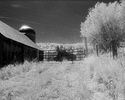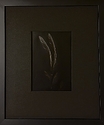matthewm
Member
Hey y'all,
I developed my first roll of film in more than 10 years over the weekend (whew, I'm rusty!), and it initially turned out okay just looking at the negatives in the light. It was a roll of Tri-X (fresh) developed in CineStill's Monobath (first roll from a fresh bottle so I know the chemicals are good).
However, I noticed yesterday when I went to scan in a couple of the negatives that I'm getting some dark, yellowish areas on the negatives and when I scanned one of the photos in, I'm seeing what looks almost like tiny grains of rice instead of film grain. It's organic in nature and doesn't appear across the entirety of the image. I'm attaching a crop or two so you can see it...
Is this chemistry-related? Or possibly a bad roll of film? I've developed hundreds of rolls of film (black and white), albeit a long time ago, and I'm at a loss here with what could have gone wrong or what I'm missing.
Thanks,
Matthew


I developed my first roll of film in more than 10 years over the weekend (whew, I'm rusty!), and it initially turned out okay just looking at the negatives in the light. It was a roll of Tri-X (fresh) developed in CineStill's Monobath (first roll from a fresh bottle so I know the chemicals are good).
However, I noticed yesterday when I went to scan in a couple of the negatives that I'm getting some dark, yellowish areas on the negatives and when I scanned one of the photos in, I'm seeing what looks almost like tiny grains of rice instead of film grain. It's organic in nature and doesn't appear across the entirety of the image. I'm attaching a crop or two so you can see it...
Is this chemistry-related? Or possibly a bad roll of film? I've developed hundreds of rolls of film (black and white), albeit a long time ago, and I'm at a loss here with what could have gone wrong or what I'm missing.
Thanks,
Matthew







